A Complete Culture Solution
for Small to Medium Enterprises (SMEs), Not-For-Profits (NFPs) and Scale-ups
An Integrated, Data-Informed Approach to Culture
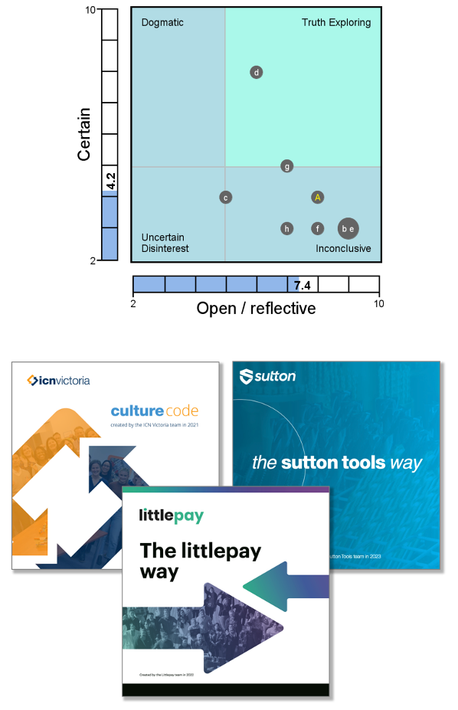
Some Companies and Organisations We've Helped Co-Create Culture Codes for
and the purpose statements we helped them define
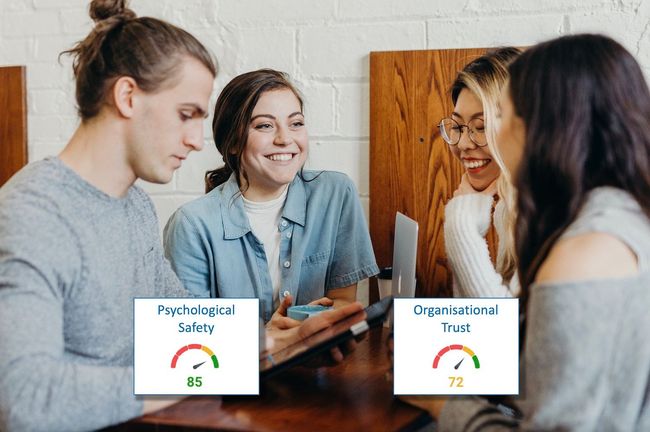
Meet Your Obligations for Psychological Safety under Australia’s Work Health And Safety (WHS) Act
Should you build a Culture Code, or jump right into measurement and culture activation?
- Do you know why you exist as an organisation?
- Do you understand your culture today?
- Do you have clarity around the culture you need to get to where you want to go?
- Do you have clarity and alignment on short to medium term shared goals that advance your purpose?
- Do you feel like your remote and hybrid employees are well integrated and aligned with your goals?
If you answered yes to all these questions, you may be ready to jump into Salpulse and start measuring and activating your desired culture. If not, then consider our Culture Code process first.

What Having a Culture Code
Looks Like
Some of our clients talk about the Culture Code process and what it has meant for their organisation.
Leaders and Employees from a Couple of our Clients
talk about their purpose and culture after co-creating and launching a Culture Code
Sutton Tools
A century-old, iconic family business, still manufacturing in Australia and around the world.
Littlepay
A rapidly growing scale-up software company, disrupting the transit payments industry.
A Culture-Centric Peer Recognition Platform
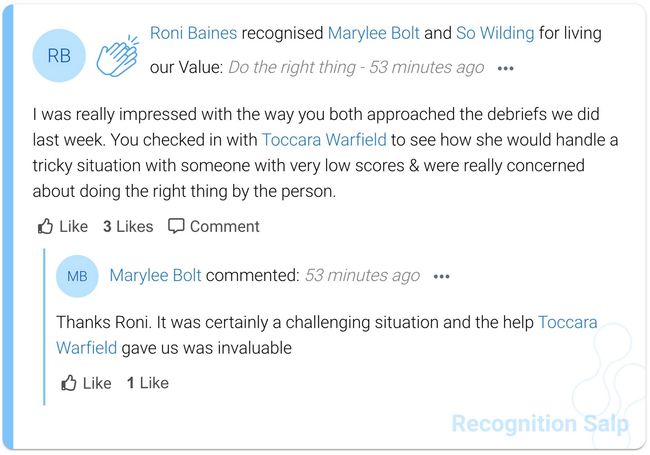
Constant Reinforcement of your Culture Code
Your Culture Code is concisely organised under Salpulse’s Why, Way and Do menus with the Way menu having a channel for each of your organisation’s values, and its associated behaviours. The feeds of the Salps your people send each other and the stories they post brings your Culture Code to life, through real-life examples that reinforce “how things are done around here”.
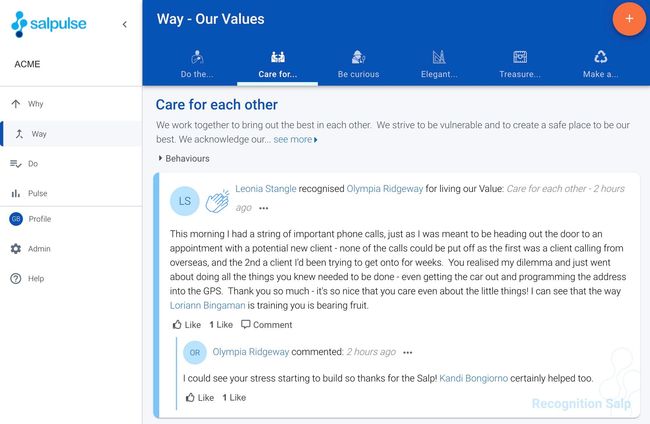
Measure Culture
Whilst measuring employee engagement is important, there’s more to measuring culture. Salpulse takes pulse measurements of your organisation’s culture, by monitoring how well your organisation’s Culture Code is being lived, the level of trust within your organisation, psychological safety, as well as measuring employee engagement levels (including your Employee Net Promoter Score - eNPS).
Traffic lights quickly highlight where you might have issues and comparison markers let you track your culture’s progress over time.
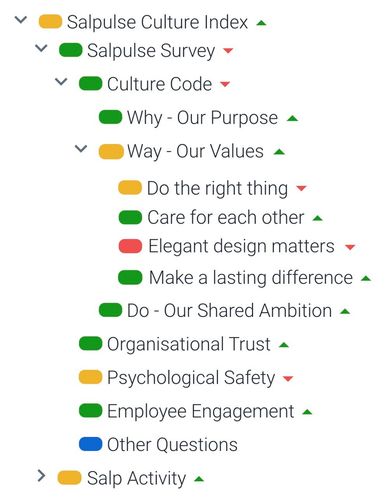
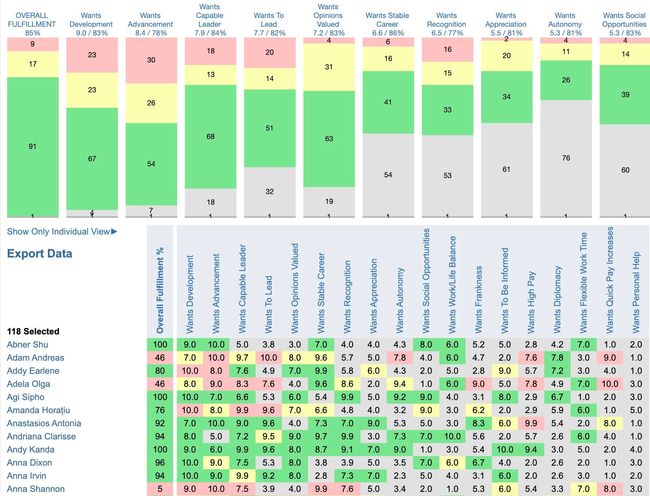
Actionable Employee Engagement Measures
For a deeper dive into employee engagement at the individual level, we use Harrison Assessments Engagement Analytics.
Harrison takes a different approach to other engagement surveys. Seeing engagement as a two-way responsibility between your organisation and the employee, the engagement data and reports give you actionable ways of having productive conversations with individual employees about what is really important to them, and how you both can mutually fulfil those needs.
Your Roadmap to Organisational Culture Capability
By mastering core culture capabilities in your organisation, you’ll ensure that all your people are advancing your purpose and bringing your strategy to life.
It's a journey. We can help you get there, step by step.
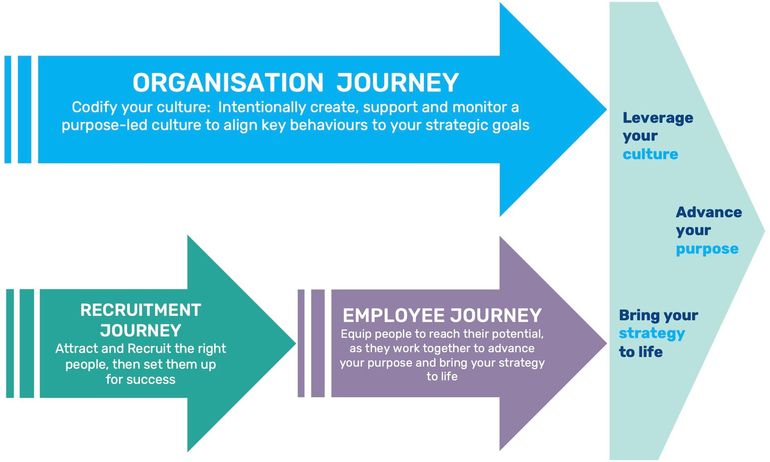
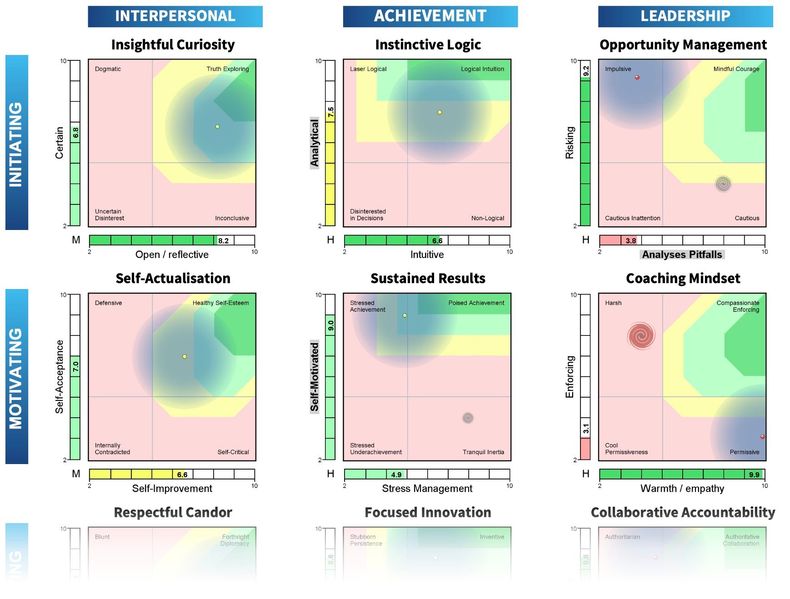
Develop your People Using Culture Data
As arguably, the world’s best psychometric tool for the workplace, we use Harrison Assessments for developing employees. Unlike 360-degree feedback tools that leave people feeling deflated, Harrison is a self-assessment based on enjoyment theory. With it, you discover an individual’s behavioural preferences, how they are likely to navigate a team environment, how they like to communicate, how they lead, how certain traits are helping or hindering their success at the job, and how they react to stress.
A Team Effectiveness Process Based on Behavioural Analytics
Take a data-informed, culture led approach to team development with our Harrison Assessments based, team effectiveness and alignment workshops and one-on-one coaching. We work with teams to develop a deeper understanding of individual and collective strengths, improve or further develop team dynamics and ensure alignment around shared goals.
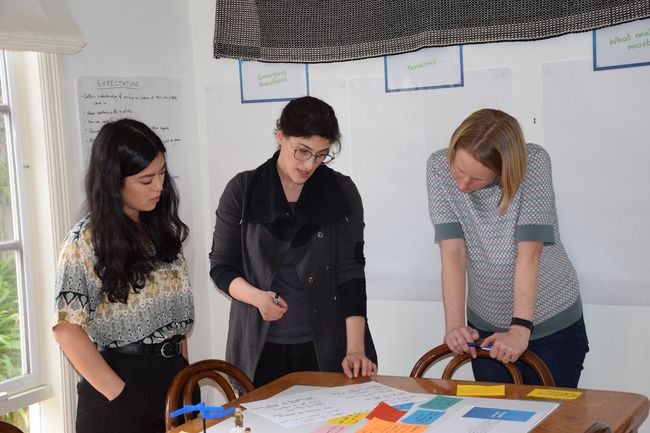
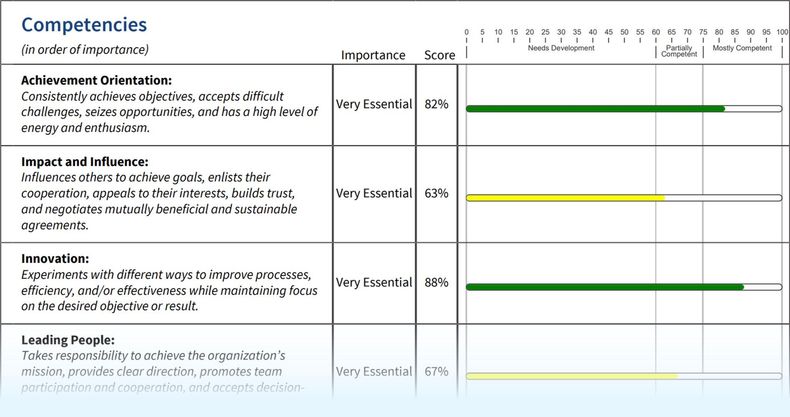
Leadership Development - Powered by Data
Equip leaders to nurture the culture that supports employees to deliver on your strategic goals. Like our team effectiveness process, our leadership development process is rooted in data. Harrison behavioural analytics measures a broad range of traits that impact leadership effectiveness including 10 leadership competencies, such as Impact and Influence and Innovation.
Attract and Retain the Best Candidates
The best candidates are attracted to an organisation where they will be valued and are contributing to something bigger than themselves. Improve your employer branding with a Culture Code. Your Culture Code shows potential employees that you are serious and transparent about your culture. It shows them that you are not just a business, but a community of passionate and purpose-driven people, aligned around a common goal and with shared values that are lived throughout your organisation.

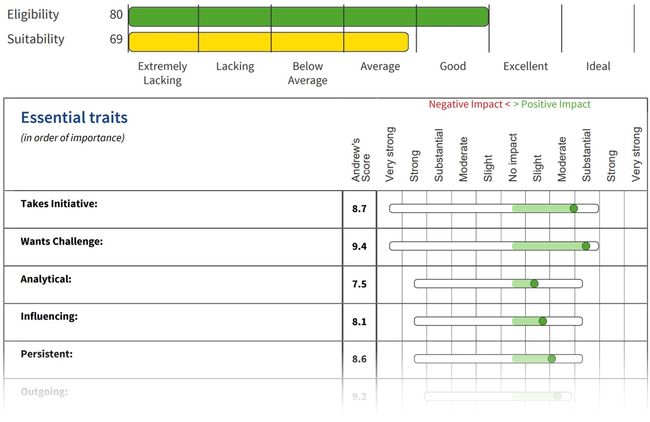
Recruit Using the Science of Behavioural Analytics
Do you really know how a candidate will work out in the long run?
Take the guesswork and out of recruiting, reduce bias, and reduce the risk of a hiring mistake, by recruiting candidates using Harrison Assessments' in-depth data for Eligibility (competency, skills and education), Suitability (a balance of traits that will support enjoyment and success in the role), Values Mapping (how well they are likely to positively contribute to your culture and align with your purpose and values), Quantitative Critical Thinking and Leadership suitability.
Organisational Culture
Recruitment and Retention
Culture Code
Product - Salpulse
Salple
+61 (0)41-830-1954
Melbourne (Dromana), Vic
AUSTRALIA
3936

